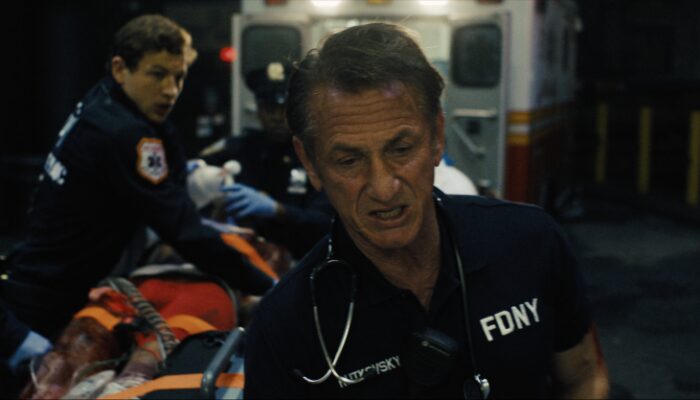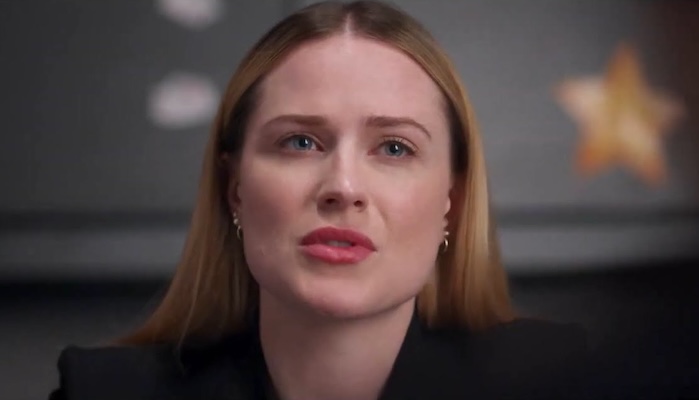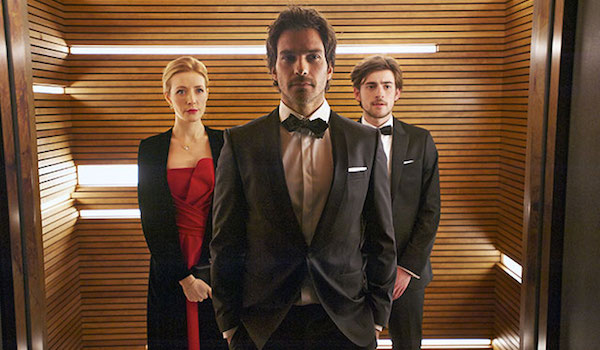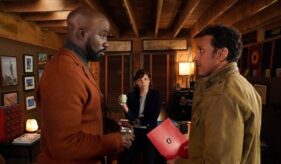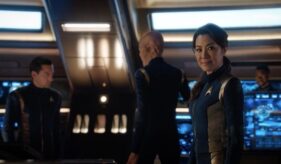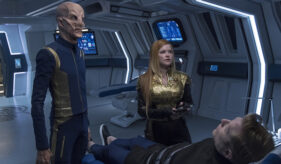TV Review: SALVATION: Season 1, Episode 1: Pilot [CBS]
Salvation Pilot Review
CBS‘ Salvation: Season 1, Episode 1: Pilot was the beginning of what could have been a great doomsday TV show about the end of the world, trying to averted that cataclysm, and how humanity dealt with an impending extinction level event (E.L.E.). What Salvation was, through its pilot episode script, was something that masqueraded as the former but was actually a shabby, un-thoughtout scifi / conspiracy drama filled with plot holes.
Pilot was packed with great ideas e.g. The Ark. When those ideas were put into the blender that purported to be the real world, certain aspects of its narrative fell apart.
Here are two examples in Pilot:
1.) When M.I.T. graduate student Liam Cole (Charlie Rowe) realizes that his professor, Dr. Malcom Croft (Dennis Boutsikaris), may have been kidnapped, he immediately called 911. That’s logical, what almost everyone would have done in that situation. He then got chased by a mysterious black van. Why didn’t the people in the van drive Liam down, drive off, then destroy the van? They made that big show of chasing Liam for what? To intimidate him? When the chase ended, Liam didn’t call 911 again. Why? It seemed to be more important than ever. Instead of going to the police department to report both incidents, Liam went to a rich tech mogul to tell him what had just happened. How in any way does that make sense? When Liam was in the presence of potentially the person that Dr. Croft contacted in the government about Liam’s discovery (easy supposition for a person of Liam’s intelligence to make), Liam said nothing about his missing professor. Why? Deputy Secretary of Defense Harris Anders (Ian Anthony Dale) was either the person that Dr. Croft contacted or Anders might have had the ability to find out whom Dr. Croft had contacted. How could Liam not ask him? Even if it was a fishing expedition, why didn’t Liam gauge Deputy Secretary of Defense Anders’s response to his query? By Liam’s own admission, Liam was very observant.
2.) Some branch of the government was killing people during Pilot to keep the E.L.E. secret à la Roland Emmerich‘s 2012. If this branch of the government was willing to kill people to keep that secret, why not just imprison the kill targets in a black prison instead? Why become murders? If you are willing to take away all of a U.S. citizens’ rights by killing them, why not take a step back from that abyss and imprison them without charges or due-process?
Keep this in mind, if the United States was able to nudge the asteroid enough so that it didn’t strike Earth, the government assassins would have killed all of those people for nothing. If they had imprisoned them, they could simply release them. The murder step was one unnecessary step too far. The writers of Pilot (Liz Kruger, Craig Shapiro, and Matt Wheeler) didn’t see this logic or didn’t care. Just because something is cool or seems to raise the stakes in your narrative doesn’t mean that it is realistic. In Mimi Leder‘s Deep Impact, when a reporter found out about the E.L.E., the government met with her, they came to an arrangement, then they released her. That’s logical, realistic. In Pilot, they go from zero-to-sixty, from one extreme (categorical denial) to another (murder), in the blink of an eye.
Those weren’t the only deleterious narrative issues that existed within Pilot. The classic screenplay trope of a character explaining something complex to the audience in simplistic terms (e.g, the poster / gravity drive scene in Paul W.S. Anderson‘ Event Horizon) occurred multiple times during Pilot. It was disguised cleverly but it was also unnecessary. With the internet at the viewer’s disposal, people could have looked up the tech on display in Pilot. Why waste your precious screen time explaining things to the viewer when you could be developing a character beyond superficiality or excising a plot hole?
The love story in Pilot between Liam Cole and aspiring science fiction writer Jillian (Jacqueline Byers) was quaint, sweet (the Mars / stars moment), and without depth. The latter was to be expected since the episode was only 44 minutes long but it seemed a little rushed, like the human resistance that sprang to life in the very first episode of ABC‘s V remake.
As I mentioned earlier, one of the greatest strengths of Pilot were the ideas that it presented in its narrative. The first was the type of satellite, a gravity tractor, that the United States government was going to use to divert the asteroid from hitting Earth. The second was Darius Tanz (Santiago Cabrera)’s Ark. The latter was an absolutely fascinating development in Pilot, so much so that many of Pilot‘s plot holes could have been forgiven (or at least forgotten about) because of its inclusion. Saving humanity via an Ark in space was derivative, like many aspects of Pilot‘s narrative, but it was also compelling. This particular derived Pilot plot-point from the first season of The CW‘s The 100 (i.e. humanities lifeboat in space in The 100 was called The Ark) was the episode’s strongest plot development.
The Tanz twist, however, was that he wanted to take that ship (or ships), that Ark, to Mars, and colonize that planet with what was left of humanity. It was that small, tiny nugget of originality that saved Pilot from mediocrity.
When the gravity tractor inevitably fails and the nuclear option inevitably fails, all hopes and eyes will turn towards Darius Tanz and his Ark plan. That is when intrepid reporter Amanda Charles (Shazi Raja)’s role in Salvation‘s narrative will become of increasing importance. When news of the E.L.E. breaks (derivative of Deep Impact), marshal law is declared (derivative of Deep Impact), prices are frozen (derivative of Deep Impact), and word of The Ark gets out i.e. a national lottery (derivative of Deep Impact), it will become a feeding frenzy to get one of those limited Ark seats. The latter would result in a large portion of the drama and tension (e.g. bribes, threats, sexual favors, etc.) in the later episodes of Salvation this season and potentially into next season (if the show gets that far).
What would be great (the series will never get this far) would be that humanity got to Mars within the narrative of Salvation. That a new government was established and that humanity had to get used to living inside human-made, Martian enclosures. That would be during season three or four of Salvation. The 100‘s narrative, over multiple seasons, evolved in that fashion i.e. new challenge after new challenge had to be surmounted. Salvation will never last three or four seasons unless its story gets profoundly more rich between now and then. If it doesn’t, and there is no evidence that it will, fans of Salvation will never get to see the aforementioned tone shift or Salvation‘s narrative widen to all those new, exciting story-telling avenues. It’s a shame. Evolving narratives, and the characters within them, are the best narratives on television.
Leave your thoughts on this Salvation Pilot review and this episode of Salvation below in the comments section. Readers seeking more Salvation can visit our Salvation Page. Readers seeking more TV show reviews can visit our TV Show Review Page, our TV Show Review Twitter Page, our TV Show Review Facebook Page, and our TV Show Review Google+ Page. Want up-to-the-minute notification? FilmBook staff members publish articles by Email, Twitter, Tumblr, Google+, and Facebook.
Related Articles
FilmBook's Newsletter
Subscribe to FilmBook’s Daily Newsletter for the latest news!


